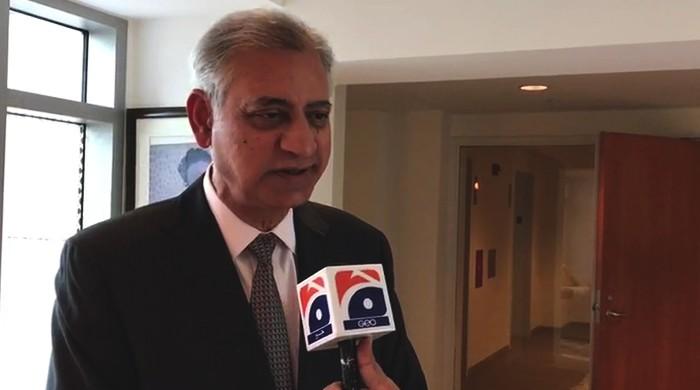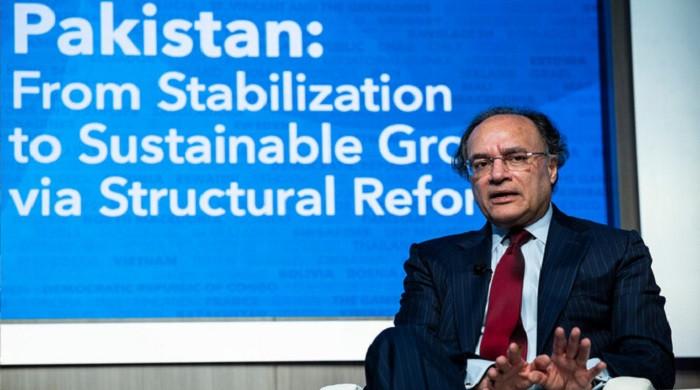Banking sector "strong and resilient", aim to push GDP growth to 5%: Governor SBP
"A benchmark is judged by making comparisons against prior periods," says SBP Governor Ashraf Wathra
April 27, 2017

A common prevalent perception among the Pakistani people is that the country’s current economic condition is not satisfactory.
However, State Bank of Pakistan (SBP) Governor Ashraf Wathra disagrees.
Speaking exclusively to Geo.tv, Wathra – who was part of the delegation led by Federal Minister for Finance Muhammad Ishaq Dar to Washington for the World Bank & IMF Meeting – argued that before making such statements, it should be understood that a benchmark is judged by making comparisons from prior periods.
“Pakistan’s GDP growth from 2008-2013 remained on average at 2.80 percent, which, for a country our size, is quite inadequate,” the Governor said, adding that the global financial crisis of 2008 was a major catalyst behind the stagnating economy.
However, the then-government, with the help of SBP, Ministry of Finance, and the Security and Exchange Commission (SECP), made considerable efforts to bring the economy on track.
“Just last year, the GDP growth rate was recorded at 4.70 percent, and our goal is to push it over 5 percent,” explained Wartha.
Inflation, on the other hand, was registered at 2.90 percent – the lowest rate in almost 15 years, the Governor claimed. This fiscal year, however, when data is disclosed on June 30, 2017, the CPI is expected to come in at 4 percent.
Wathra went on to say that lower inflation rate has led to a significant reduction in the input costs for the nation’s business sector. Of these, power expense forms a major portion of the overall expenditure.
Following the easing process under the monetary policy, “the country’s policy rate is set at 5.75 percent – the lowest in over 50 years”, the top official revealed. All of this has contributed to a persistent expansion in the private sector.
“For the nine months ended March 2017, this surge was recorded at Rs. 460 million,” Wathra added.
The current government aims to pull the GDP growth rate to 7 percent in the next two years; however, what’s even more important is to make this sustainable over the longer term.
This is necessary for the nation, as universities are teeming with an increasing number of fresh graduates, who are added to the labour force every year. A sustainable GDP growth rate over the long term, in this regard, will be able to “gainfully engage” the new entrants.
Wathra says that the banking sector of Pakistan, despite stumbling from a major hit in 2008, has managed to get back on its feet. He called the industry “strong and resilient”.
The Governor backed his stance with the fact that the average capital adequacy ratio at present is 16.4 percent, which is an achievement, considering that the international standard is 10.5 percent. “Banks are not facing any liquidity crisis, and the private sector is experiencing rapid progress.”
Wathra believes that a regulator never stops their work. He said, “While it is our aim to continuously strengthen the foundations of the economy, especially the banking sector, there are no major problems at present.”
As for the corruption and curbing the overseas money outflow, regulators can only take action if the transaction is made through commercial banks, development financial institutions or exchange companies. In that case, “it is possible for us to launch an investigation,” stated Wathra.
However, if a shady transaction is made through cash – cross-border cash movement – then “it does not fall under our jurisdiction, but of law enforcement agencies.”











